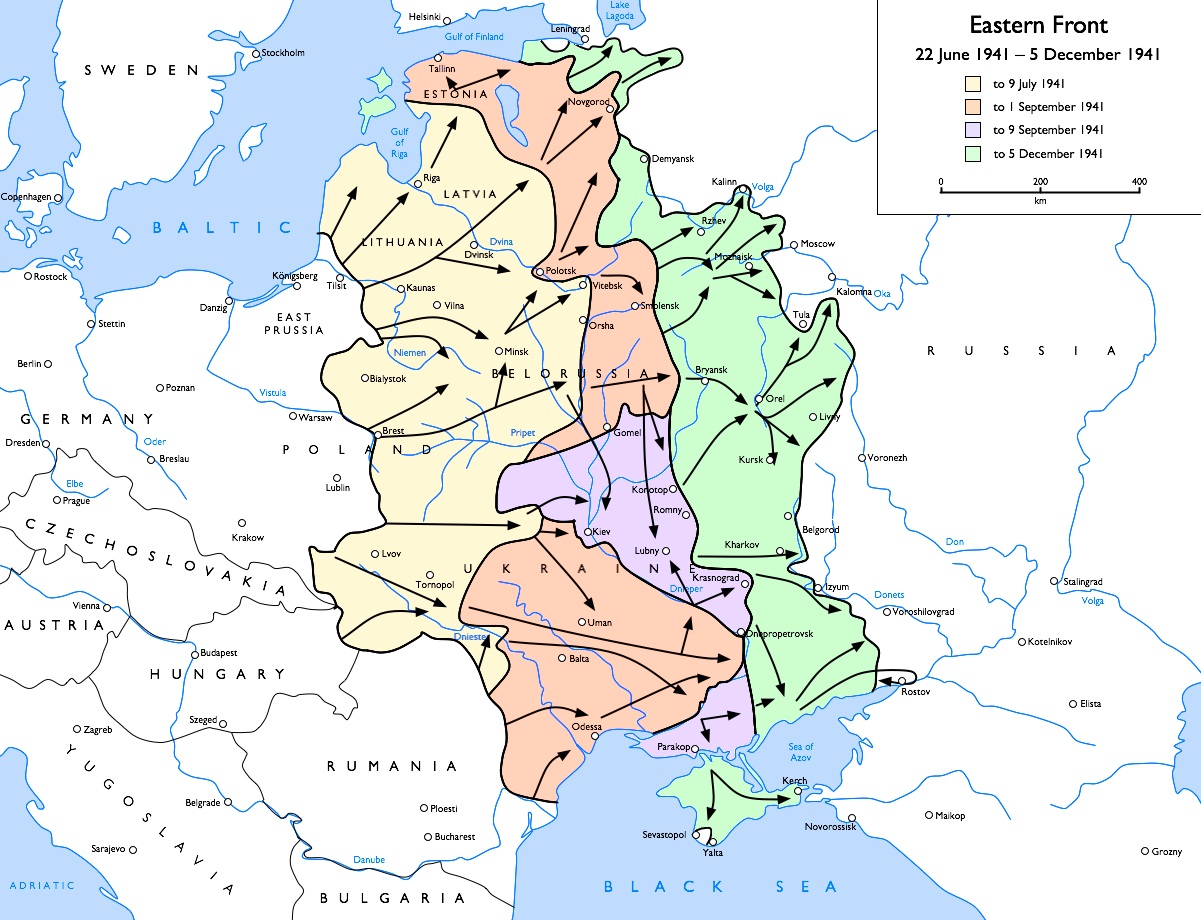
Story Highlights
- Historical event:
- 22 June 1941
- German forces were divided into three army groups, each of which was under the command of a German field marshal (von Leeb, von Bock, and von Rundstedt). It is interesting that all three of these field marshals were members of the nobility.
On this day Operation Barbarossa, the Axis attack on the Soviet Union, was set in motion.
More than three million members of the German Armed Forces (Wehrmacht) and troops of their allies were deployed. Operation Barbarossa was certainly one of the biggest military operations in the history of warfare, perhaps even the biggest.
It was named after the German medieval ruler Frederic Barbarossa of Hohenstaufen dynasty. Frederic’s nickname “Barbarossa” means “Red Beard” in Italian (the same as the German “Rothbart”).
How did the start of Operation Barbarossa look like? Invasion of the Soviet Union was carried out on a front thousands of kilometers long. The German forces were divided into three army groups:
– Army Group North (Heeresgruppe Nord) – with the goal of conquering the Baltic area and Leningrad.
– Army Group Centre (Heeresgruppe Mitte) – with the objective of capturing Moscow.
– Army Group South (Heeresgruppe Süd) – with the goal of taking Ukraine and further advancement into the south.
Each Army Group was under the command of a German field marshal:
– Army Group North – Field Marshal Wilhelm von Leeb.
– Army Group Center – Field Marshal Fedor von Bock.
– Army Group South – Field Marshal Gerd von Rundstedt.
It is interesting that all three of these field marshals were members of the nobility from before (as is evident by the word “von” in front of their names).
Field Marshal von Leeb was a Bavarian nobleman (with a knighthood), while field marshals von Bock and von Rundstedt were of Prussian aristocratic origin (Prussian nobility was famous for its military tradition).
On this day, a strong bombardment of cities, primarily Polish cities held by the Red Army, were carried out. Soon, all three Army Groups began to advance and push the Red Army back.
It is paradoxical that the Wehrmacht won many tactical victories during Operation Barbarossa, but failed to complete the main strategic goal – the destruction of the Soviet defense forces.




